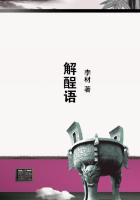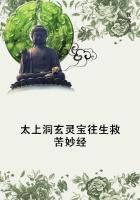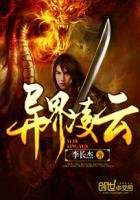Besides the itinerant journey-workers there were also present John Upjohn, engaged in the hollow-turnery trade, who lived hard by; old Timothy Tangs and young Timothy Tangs, top and bottom sawyers, at work in Mr. Melbury's pit outside; Farmer Bawtree, who kept the cider-house, and Robert Creedle, an old man who worked for Winterborne, and stood warming his hands; these latter being enticed in by the ruddy blaze, though they had no particular business there. None of them call for any remark except, perhaps, Creedle. To have completely described him it would have been necessary to write a military memoir, for he wore under his smock- frock a cast-off soldier's jacket that had seen hot service, its collar showing just above the flap of the frock; also a hunting memoir, to include the top-boots that he had picked up by chance; also chronicles of voyaging and shipwreck, for his pocket-knife had been given him by a weather-beaten sailor. But Creedle carried about with him on his uneventful rounds these silent testimonies of war, sport, and adventure, and thought nothing of their associations or their stories.
Copse-work, as it was called, being an occupation which the secondary intelligence of the hands and arms could carry on without requiring the sovereign attention of the head, the minds of its professors wandered considerably from the objects before them; hence the tales, chronicles, and ramifications of family history which were recounted here were of a very exhaustive kind, and sometimes so interminable as to defy description.
Winterborne, seeing that Melbury had not arrived, stepped back again outside the door; and the conversation interrupted by his momentary presence flowed anew, reaching his ears as an accompaniment to the regular dripping of the fog from the plantation boughs around.
The topic at present handled was a highly popular and frequent one--the personal character of Mrs. Charmond, the owner of the surrounding woods and groves.
"My brother-in-law told me, and I have no reason to doubt it," said Creedle, "that she'd sit down to her dinner with a frock hardly higher than her elbows. 'Oh, you wicked woman!' he said to himself when he first see her, 'you go to your church, and sit, and kneel, as if your knee-jints were greased with very saint's anointment, and tell off your Hear-us-good-Lords like a business man counting money; and yet you can eat your victuals such a figure as that!' Whether she's a reformed character by this time I can't say; but I don't care who the man is, that's how she went on when my brother-in-law lived there."
"Did she do it in her husband's time?"
"That I don't know--hardly, I should think, considering his temper. Ah!" Here Creedle threw grieved remembrance into physical form by slowly resigning his head to obliquity and letting his eyes water. "That man! 'Not if the angels of heaven come down, Creedle,' he said, 'shall you do another day's work for me!' Yes-- he'd say anything--anything; and would as soon take a winged creature's name in vain as yours or mine! Well, now I must get these spars home-along, and to-morrow, thank God, I must see about using 'em."
An old woman now entered upon the scene. She was Mr. Melbury's servant, and passed a great part of her time in crossing the yard between the house-door and the spar-shed, whither she had come now for fuel. She had two facial aspects--one, of a soft and flexible kind, she used indoors when assisting about the parlor or up- stairs; the other, with stiff lines and corners, when she was bustling among the men in the spar-house or out-of-doors.
"Ah, Grammer Oliver," said John Upjohn, "it do do my heart good to see a old woman like you so dapper and stirring, when I bear in mind that after fifty one year counts as two did afore! But your smoke didn't rise this morning till twenty minutes past seven by my beater; and that's late, Grammer Oliver."
"If you was a full-sized man, John, people might take notice of your scornful meanings. But your growing up was such a scrimped and scanty business that really a woman couldn't feel hurt if you were to spit fire and brimstone itself at her. Here," she added, holding out a spar-gad to one of the workmen, from which dangled a long black-pudding--"here's something for thy breakfast, and if you want tea you must fetch it from in-doors."
"Mr. Melbury is late this morning," said the bottom-sawyer.
"Yes. 'Twas a dark dawn," said Mrs. Oliver. "Even when I opened the door, so late as I was, you couldn't have told poor men from gentlemen, or John from a reasonable-sized object. And I don't think maister's slept at all well to-night. He's anxious about his daughter; and I know what that is, for I've cried bucketfuls for my own."
When the old woman had gone Creedle said, "He'll fret his gizzard green if he don't soon hear from that maid of his. Well, learning is better than houses and lands. But to keep a maid at school till she is taller out of pattens than her mother was in 'em--'tis tempting Providence."
"It seems no time ago that she was a little playward girl," said young Timothy Tangs.
"I can mind her mother," said the hollow-turner. "Always a teuny, delicate piece; her touch upon your hand was as soft and cool as wind. She was inoculated for the small-pox and had it beautifully fine, just about the time that I was out of my apprenticeship--ay, and a long apprenticeship 'twas. I served that master of mine six years and three hundred and fourteen days."
The hollow-turner pronounced the days with emphasis, as if, considering their number, they were a rather more remarkable fact than the years.














